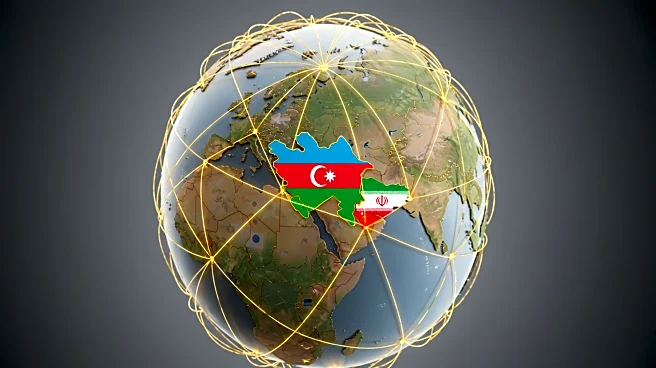What's Happening?
A peace treaty has been signed between Azerbaijan and Armenia, brokered by President Trump, aiming to end 35 years of conflict. The agreement includes a strategic corridor passing through southern Armenia, linking Azerbaijan with its exclave Nakhchivan. This corridor will be operated by a US consortium under Armenian sovereignty on a 99-year lease. The deal shifts regional power dynamics, potentially reducing Iran's influence and further diminishing Russia's presence in the area. Iran has expressed concerns over foreign interference, fearing geopolitical isolation. The corridor's control has been a major obstacle to peace between the two nations, and its establishment marks a significant diplomatic achievement.
Why It's Important?
The peace deal represents a strategic shift in the Caucasus region, potentially altering economic and political alliances. The US presence near Iran's border could impact Tehran's access to the Black Sea and Europe, raising concerns about regional security and economic routes. For Armenia, the agreement opens opportunities for integration into the Middle Corridor project, enhancing trade between Europe and China. Azerbaijan and Turkey stand to benefit from increased military cooperation with the US. The deal could stabilize the region, reducing the likelihood of military conflict and fostering economic development.
What's Next?
Armenia is expected to hold a referendum in 2027 to amend its constitution, addressing territorial claims against Azerbaijan. The success of the peace agreement may depend on Armenia's internal political dynamics and public opinion. Azerbaijan's President Ilham Aliyev has emphasized the importance of constitutional changes, warning against disrespecting the agreement. The US consortium's involvement in the corridor's development will be crucial, potentially influencing regional trade and infrastructure projects. The deal may also lead to increased diplomatic engagement between the US and regional powers.
Beyond the Headlines
The agreement could have long-term implications for regional geopolitics, potentially reducing Russian influence and increasing Western presence. The corridor's development may enhance connectivity and economic integration, impacting local economies and international trade routes. The deal also highlights the role of US diplomacy in resolving longstanding conflicts, potentially setting a precedent for future negotiations in other regions.












